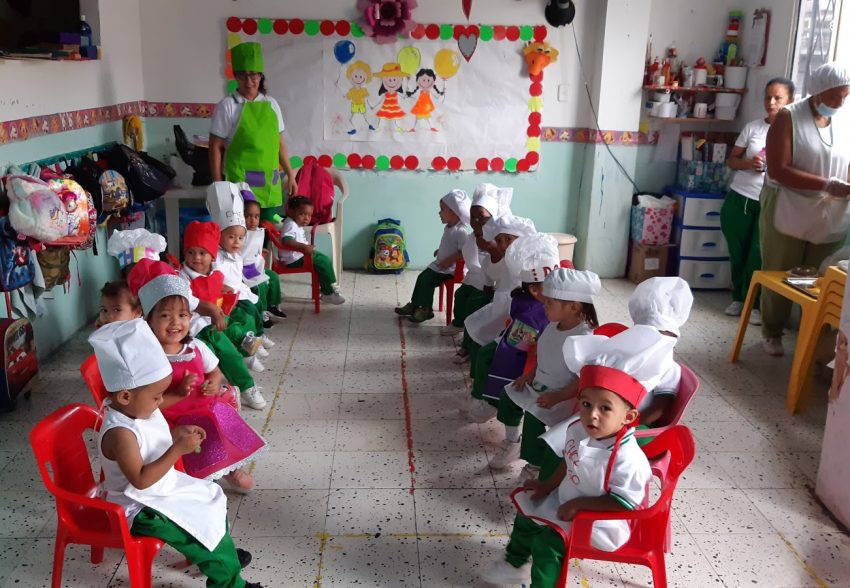
Early Childhood Development – Hybrid Value Chain
There’s a significant growth in the body of research and policy work on early childhood development in low- and middle-income countries over the last decade, but most of it is exclusively focused on identifying what is best for young children, without taking into account unintended and positive impacts on mothers (or fathers, or older children). One of the themes that kept coming up during our consultations was that interventions targeting women. For example, collective purchasing groups to increase access to nutritious food at home or creating productive units that connect the demand in the ecosystem with the offer of ECD programs. This can have a substantial impact on children. While interventions centered on infants government preschools or home visits from child development specialists), have significant impact on mothers and other caregivers. Their ability to finish school or go to work.
Showcasing the work of Coomacovalle, led by Gloria Pena, this initiative reaches 10,000+ children and their families on a daily basis.ur work focuses on socializing the incredible work of Coomacovalle as well as developing Innovative Finance models for governments and multilateral organization to increase access to programs in vulnerable communities.
TheBC.lab leads an action oriented Multi-Stakeholder Initiative to identify and measure the multitudes of impact beyond providing food and early childhood development. Our goal is to demonstrate how a Hybrid Model of Early Childhood Development that incorporates Community Mothers, productive units, and community development creates a unique model to scale up.
SDG 2 – End Hunger
SDG 3 – Education
